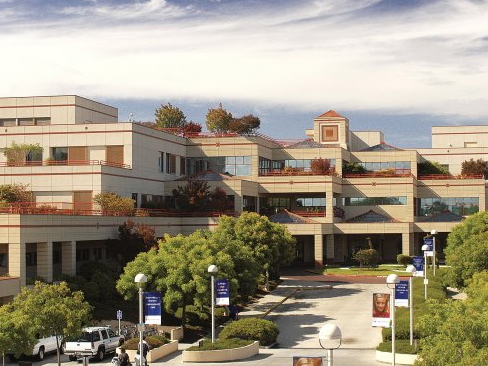Last week I started my third and final rotation of 2015 at Kaiser Oakland. I was pretty excited to start this rotation as I've always been really interested in Genetics ever since I learned about it as a freshman in high school. Having a background in Molecular Cell Biology and some in Human Development and Embryology is a definite plus for this rotation too.
So far, I'm enjoying being at Kaiser a lot. In a short week, I've seen a number of diseases and syndromes that I was constantly studying about during Step 1 and Step 2. If I was on a different rotation, I might very well have never seen any of these cases. Some of them include things like Neurofibromatosis 1 and 2, Tuberous sclerosis, Klinefelter's, Ectodermal dysplasia, and kids with Arnold Chiari malformations and myelomeningoceles. It's a lot to take in but the best part is that there's enough free time for me to research and brush up on everything while I'm at the hospital. It makes learning and remembering the diseases that much easier when I can correlate real life to what I read in the textbook or on the internet.
 |
| It was a gloomy day today in Oakland with a little bit rain! |
What I love about genetics is that you have to know about all the organ systems that a disease can involve. For example, tuberous sclerosis can often involve the brain, the eyes, the heart, and the kidneys so making sure that the kid has good follow-up with the specialists is a really important part of disease management. I also really like that in genetics, you can advise patients on the risk of passing a certain condition onto their offspring. However, that's also one of the most frustrating things about genetics as well. As much as science has advanced in the last 100 years, especially in the field of molecular genetics and genome sequencing, a lot of the current laboratory tests for human gene sequencing is still far from adequate. Occasionally, the result of gene sequencing shows that the patient has a specific, documented mutation in the exact gene you suspected. For example, if the test for Cystic Fibrosis shows the classic delta-F508 mutation in chromosome 7 then you can practically be 100% certain that the child has CF. Unfortunately, often times, gene sequencing will come back with a result of something along the lines of "
variant of unknown significance" which basically means that we don't know if the mutation is pathogenic or not. It could very well be that the specific allelic variant is a completely normal one or it could be that the variant is in fact causing the disease. When that happens, it's really hard to tell the parents that essentially we did the test and now we have this information....but what can we do with the information? Essentially not that much.
A ton of research is going into genetics as it's still one of the biggest subjects in science. There have been leaps and bounds made in the last 50 years in the field but there are
many more breakthroughs that must arise before genetic testing will become more helpful. It's truly a field that has so much more potential ahead for it and one that many more people will continue to utilize as research and further medical advancements are made. If I decide to go into genetics, one thing I'll know for certain is that it will never be an obsolete field....and that's pretty reassuring!


